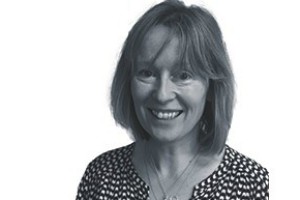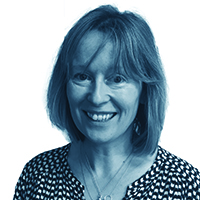It’s not all hiking and bungee jumping down under


Not a day goes by now that I have returned to the UK that I don’t think of Northland, the glorious top chunk of the North Island of New Zealand where I lived and worked for just under two years. While my work there as a GP was in many ways similar to that in the UK, I found the patients presented some unique and unexpected challenges.
For one thing, the area is not known for the rude health of its inhabitants. Many Northlanders are grossly overweight, their rates of diabetes and renal failure are sky-high, they have appalling diets, and the socio-economic profile of the region has traditionally been dire – though an influx of wealthy retiree Aucklanders is beginning to change that.
New Zealand is the third fattest country in the world. Drug and alcohol use are common. Domestic violence is too. Housing is often inadequate, with poor or no heating, and damp and mould are a real issue, especially for those with asthma and chronic illnesses of every kind. Public transport is patchy, and non-existent in rural areas, and car dependency is therefore high.
As in the UK, the gap between rich and poor is alarming, and widening all the time. The rich live exceptionally well in New Zealand; the poor are shockingly poor.
Other presentations took me aback – impetiginous ‘school sores’ are everywhere
All of this came as a surprise to me, and could not be further from the image of the active, lean hikers and bungee-jumpers seen in the country’s very successful tourism campaigns in recent years. (Such types do exist, of course – I was married to one – but are, for obvious reasons, rarely seen inside a doctor’s surgery!)
On the plus side, New Zealand is famously one of the most beautiful countries in the world. The coastal scenery in Northland is second to none – the beaches glisten in the sunshine, virtually empty, fringed by Pohutukawa trees, the Kiwi ‘Christmas trees’ which flame red over the winter months and are celebrated in thousands of Instagram posts each year. Community spirit is alive and well and actively cultivated, and people are down-to-earth, kind, warm and funny (until they step into their cars, that is – but that is a rant for another day.) Maori culture is valued, as opposed to being suppressed, as it was in the past (though it is fair to say that racism remains common, particularly in its subtler, more insidious forms).
Day to day, the conditions I saw in surgery were in many ways familiar to me. We served a largely elderly, affluent population, on the usual modern-day mix of statins, cardiac drugs, inhalers, creams, bisphosphonates, and supplements of every kind – the Antipodean love affair with naturopathy is an enduring one.
Other presentations took me aback. Skin conditions are rife. Impetiginous ‘school sores’ are everywhere. Kids go barefoot at the drop of a hat (keep in mind that mud and rain are a major part of Northland life, where it pours heavily for much of the winter) and are positively encouraged to kick their shoes off on arrival at school. Football is played barefoot, leading to completely avoidable injuries, and penetration injuries are common. Cross-country running is also done without shoes. After just a month in New Zealand my son’s feet (to which I had never needed to pay a moment’s attention) were covered in scars, scratches, running sores and a crop of veruccas that proved resistant to all treatments known to man.
Sore throats are brought immediately to medical attention, often within hours, following a vigorous public health campaign attempting to wipe out rheumatic fever. (Yes – rheumatic fever. In many ways, Northland has more in common with its Pacific Island neighbours that with, say, the South Island of New Zealand.) I spent much of my day swabbing them, accordingly, somewhat bewildered to hear, yet again, the words ‘yes, this came on today, doctor. I knew you’d want to see me straight away’.
My previous experience of working in New Zealand had been in Dunedin, at Otago University’s student health centre, some years ago now, and Whangarei might as well be in a different country. Dunedin is Scottish in feel, and cosmopolitan due to its large university. It is famous for its albatrosses and its penguins. Fleeces abound there, and craft beer outlets have colonised its streets.
Northland is different in every way. It is brighter, more colourful; it is hotter, and poorer. It is rougher around the edges. It has considerable charm. It consumes a LOT of fried chicken. I love them both. I miss New Zealand. But, for now, I belong back in Britain.
Dr Kate Harding is a locum GP and hospice doctor in Herefordshire
Pulse July survey
Take our July 2025 survey to potentially win £1.000 worth of tokens














